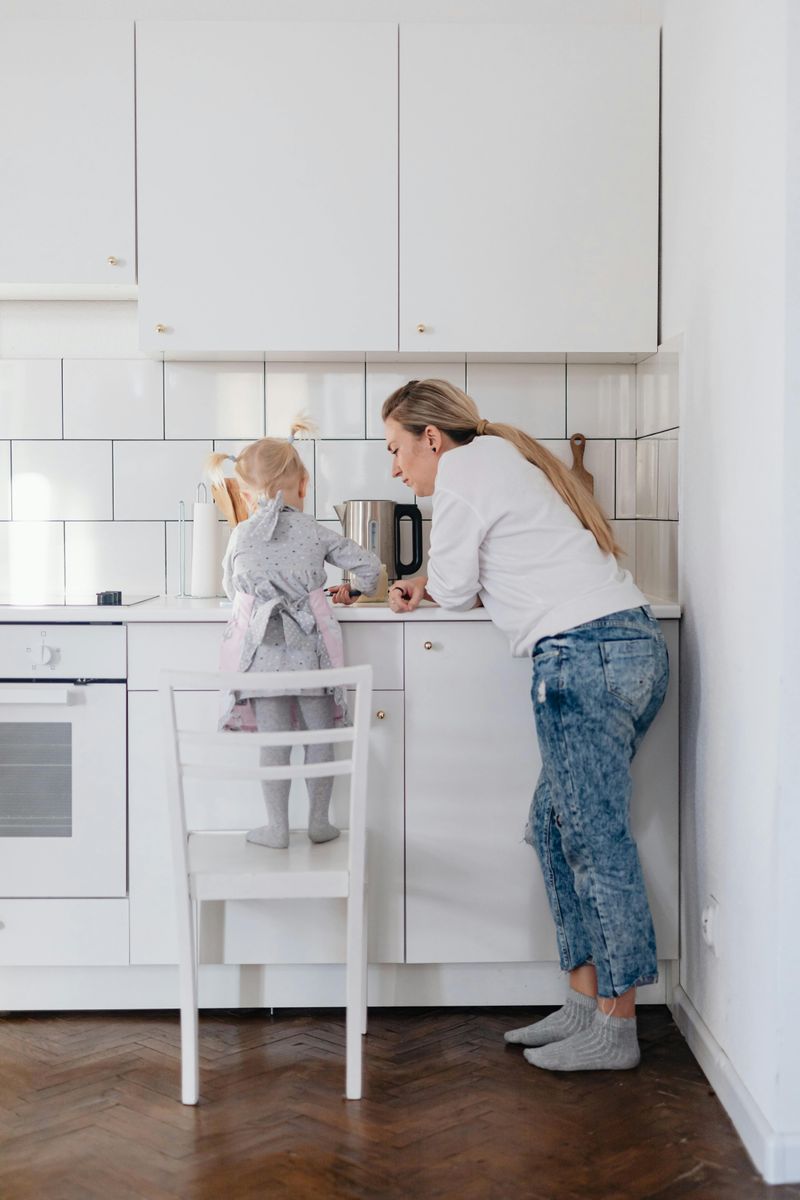11 Things a Woman Shouldn’t Have to Do When She Has a Husband

Marriage is a partnership built on mutual respect, love, and shared responsibilities. When a woman enters into this sacred bond, she should not be burdened by tasks that are meant to be shared. Marriage is about collaboration, where both partners contribute equally to the relationship and household. This collaboration ensures that both individuals have the opportunity to pursue personal goals and maintain a balanced life. Unfortunately, societal norms and traditional roles often place an uneven burden on women, especially in domestic settings. Here, we explore eleven things that a woman should never have to do alone when she has a husband, emphasizing the need for equality and partnership.
1. Carry the Entire Household Load Alone

In many homes, women often find themselves juggling cooking, cleaning, and laundry single-handedly. These chores, though essential, shouldn’t rest solely on her shoulders. Marriage is a partnership, and sharing household duties reflects that bond.
When both partners contribute to daily chores, it fosters a sense of teamwork and understanding. It also allows each individual to have more leisure time and pursue personal interests.
A husband can take initiative by planning meals or organizing cleaning schedules. This balanced approach not only strengthens the relationship but also promotes a fair distribution of tasks, making home a harmonious place for both.
2. Manage All the Finances by Herself

Managing finances is a critical aspect of married life. However, the burden of budgeting, paying bills, and planning for the future shouldn’t fall solely on one partner. When a woman is left to manage all finances herself, it can lead to unnecessary stress.
A shared approach to financial management not only reduces stress but also fosters trust and transparency between partners. Both should be involved in budgeting discussions and financial planning.
By working together, they can create a comprehensive financial plan that meets their shared goals and aspirations. This collaboration ensures that both partners feel secure and valued in the relationship.
3. Be the Only Parent “On Duty”

Parenting is a shared responsibility, yet many women find themselves acting as the primary caregiver, managing everything from school runs to bedtime routines. This imbalance can make them feel like single parents despite being married.
Engaging both parents in child-rearing not only strengthens family bonds but also provides children with diverse role models. Fathers actively participating in parenting duties can create enriching experiences for the entire family.
By sharing responsibilities, both parents can ensure a nurturing environment for their children. This shared approach also allows both partners to enjoy personal time, leading to a more balanced and fulfilling home life.
4. Handle All the Emotional Labor

The invisible tasks of managing a family calendar, remembering birthdays, and scheduling appointments often fall on women. This emotional labor, though unseen, is crucial for maintaining family harmony and should be shared.
When a husband participates in these duties, it lightens the load and shows appreciation for his partner’s efforts. It also enhances the emotional connection between them, fostering a more supportive partnership.
By dividing these tasks, both partners can focus on nurturing their relationship and personal growth. Sharing emotional labor ensures that no one partner bears the full weight of keeping family life organized and joyful.
5. Make All the Social Plans

Social planning, from organizing family gatherings to scheduling date nights, often falls on women. This responsibility can be overwhelming and may lead to feelings of neglect if her efforts go unnoticed.
A husband should also take initiative in fostering social connections and planning events. This shared effort not only strengthens the marriage but also enriches family relationships and friendships.
By taking turns in planning, both partners can enjoy a variety of social experiences. This approach ensures that the burden of maintaining connections doesn’t rest on one individual, fostering a more balanced and joyful social life.
6. Sacrifice Her Dreams or Career Alone

A woman’s dreams and career aspirations are as vital as her husband’s. Sacrificing her ambitions for the sake of supporting her spouse is a one-sided compromise that shouldn’t exist in a marriage.
Mutual support in pursuing career goals strengthens the partnership and enriches both individuals’ lives. A husband should encourage and participate in his wife’s career journey, celebrating her achievements.
By supporting each other’s aspirations, both partners can grow together, fostering a dynamic and fulfilling relationship. This approach ensures that neither partner feels constrained or undervalued, leading to a more harmonious and equal marriage.
7. Do All the “Unseen” Maintenance Work

Household maintenance often includes small, constant tasks that go unnoticed but are essential. From replacing lightbulbs to fixing minor issues, these should not be the sole responsibility of one partner.
When both contribute to these “unseen” maintenance tasks, it fosters a sense of shared responsibility and cooperation. It prevents burnout and ensures a smoothly running household.
Encouraging husbands to take an active role in these tasks not only balances the workload but also strengthens the partnership. This approach leads to a more efficient home management system where both partners feel involved and appreciated.
8. Carry the Weight of Conflict Resolution Alone

Conflict resolution is a crucial aspect of any relationship, yet many women find themselves shouldering this responsibility alone. Being the one to always apologize or initiate difficult conversations can be exhausting.
A healthy relationship requires both partners to engage in resolving disputes. A husband should meet his wife halfway, participating actively in finding solutions and compromises.
By sharing this responsibility, conflicts can be resolved more effectively, leading to a stronger relationship. This cooperative approach ensures that both partners feel heard and respected, fostering a harmonious and supportive environment.
9. Be the Only Source of Emotional Support

Emotional support is a cornerstone of a loving relationship. However, expecting one partner to constantly absorb stress without reciprocity is unfair. Women often find themselves in this role, offering comfort without receiving the same in return.
A husband should provide emotional support, offering comfort and encouragement to create a safe emotional space for both partners. This mutual support strengthens the bond and fosters a nurturing environment.
By sharing the emotional load, both partners can thrive, enjoying a balanced and fulfilling relationship. This approach ensures that neither feels overwhelmed or unsupported, promoting a healthier and more loving marriage.
10. Always be the ‘Bad Cop’ with Kids

Playing the role of the disciplinarian can be exhausting. Imagine always being the one to say no while your partner gets to be the fun parent.
This imbalance can lead to resentment. Sometimes, it feels like you’re the villain in your children’s eyes.
In a marriage, it’s essential to share this responsibility.
Alternating roles helps children respect both parents equally. It also creates a balanced environment where discipline is not the burden of just one person. Embracing shared responsibility fosters understanding and appreciation in the family dynamics.
11. Handle All the Grocery Shopping

Picture navigating crowded supermarket aisles alone, week after week. This task often falls on one partner, usually the woman.
Grocery shopping can be a shared adventure, turning a chore into quality time together.
When both partners participate, it lightens the load and strengthens their bond. It also ensures that both have input into the household needs, preventing one person from carrying the mental load alone.
By sharing this duty, couples can enjoy the benefits of teamwork and mutual support, making everyday tasks more enjoyable.

Comments
Loading…